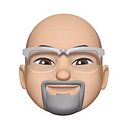Flutter suffers from several issues.
1) It's not ReactNative. ReactNative is popular because a lot of people belive the hype and think that their front-end JavaScript developers can create first-class apps. As you point out, Dart is in another language.
2) It's not native. The rendering engine ensures that your app only mimics native look and feel. Apple tweeks their interface on every release, and your app will always lag.
3) You still have to write most of your application twice. As pointed out, Android supplies Cupertino and Material widgets, which means if you really want your application to appear native (which ReactNative allows, btw.) you have to use the right widget set for the job as well as structure your app accordingly (Navigation inside Tab Bars, etc.(=)
4) It's lifetime is questionable. Google notoriously runs hot and cold on technologies, and if they don't think its going to pay off it could be dropped like a hot potato. Further, Google is also actively pushing JetPack Compose on Kotlin and even the Kotlin Native Common module for cross-platoform support.
5) FInally, clients don't want it. We've pushed it a couple of times as a possible solution and clients have resisted the notion, especially in favor of #1.
Bottom line is that Flutter is a niche technology.
In my opinion it's best suited for a small internal development team that wants to create an app that's fundamentally non-native in appearance and design and that doesn't mind learning an entirely new platform and language to do so.
